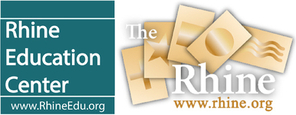Syllabus: Exploring Exceptional Experiences
Course Description
This 8-week academic course will discuss the nature of spontaneous experiences, the types of experiences explored by parapsychologists, and how researchers take a structured approach to understanding what people experience and how they understand their own experiences.
We will explore topics like precognitive dreams, clairvoyant experiences, poltergeists, near-death experiences, spontaneous after-death communication, ghosts & apparitions, and reincarnation experiences. From classifications of experiences to examinations of peer-reviewed research articles, this course provides a foundation for understanding psi in daily life.
Course Outline
- Week 1: What are Exceptional Experiences?
- Spontaneous Events, encounters of ESP in daily life
- Case collections by Louisa Rhine & Sally Rhine Feather
- General approach to spontaneous cases
- Week 2: Spontaneous ESP & Premonitions
- Examples of spontaneous cases
- Following personal experiences through life
- Qualitative approaches to investigations
- Week 3: PK In Everyday Life; Spontaneous Healing
- Examples of spontaneous PK
- Spontaneous healing
- Dreams of medical issues & intuitive diagnostics
- Week 4: NDEs, OBEs, Reincarnation
- IANDS Database (Moody’s phenomenology, Greyson scale)
- OBEs
- CORT – Stevenson & Tucker
- Midterm Exam
- Week 5: Apparitions, Hauntings, Poltergeists
- Week 6: Encounters & UAPs
- Week 7: After Death Communications
- Spontaneous mediumship
- Séance experiences
- Spontaneous ADC (phone calls, etc.)
- Week 8: Theories of Spontaneous Psi
- PMIR (Stanford)
- First Sight (Carpenter)
- Model of Pragmatic Information (VonLucadou)
Course Materials
Suggested Readings:
The Gift by Sally Rhine Feather & Michael Schmicker
Various articles, videos, and other information provided throughout the course.
Course Activities
- Students will be expected to view the class broadcasts or the recordings of the classes each week.
- Students will be expected to participate in weekly discussion forums and activities. Each student will be expected to provide an original posting each week and to respond to at least one other student in the discussion forums. Greater participation in this area will be considered during class evaluations.
- One multiple choice or short answer evaluations will be assigned after the 4th or 5th week of class.
- Final project: 3 – 7 page paper as described in the courseroom under the final project description. Document in MS-Word format due 10 days after the final class broadcast.
Evaluation and Grading
Students who are taking the course for a grade will be assessed using a letter grade based on the standard letter grade format.
- A – 90 - 100
- B – 80 – 89
- C – 70 – 79
- D – 60 – 69
- F – Below 60
Participation in the forums is a large component of the grading, and substantive postings are necessary to get full credit for each discussion topic.
The following activities will be considered to contribute to the courses as follows:
- Discussions (Total 40%)
- Week 1-2 (10%)
- Week 3-4 (10%)
- Week 5-6 (10%)
- Week 7-8 (10%)
- Assessment #1 (30%)
- Final Project (30%)

